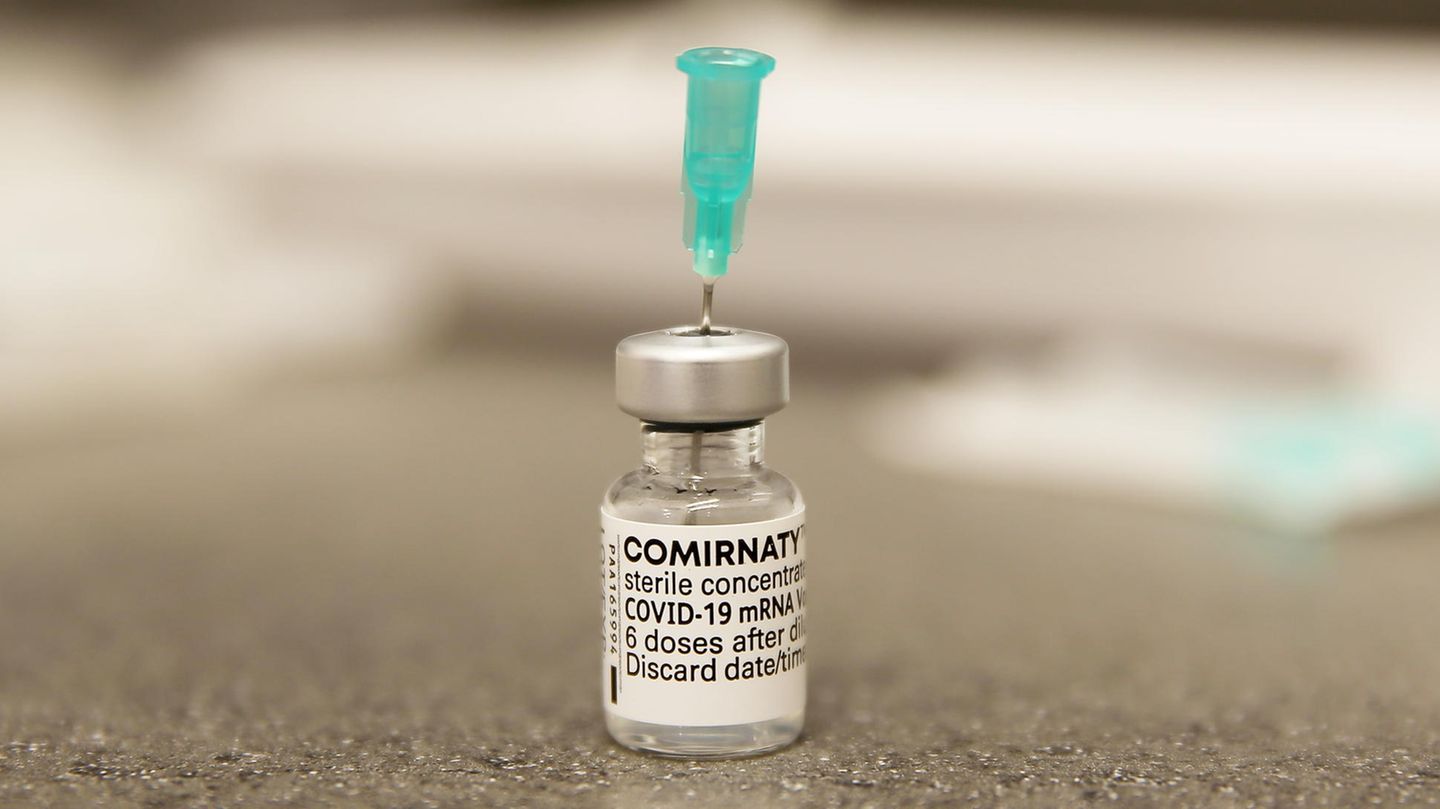The elderly and those at risk should be better protected by a third corona vaccination. Everyone else needs that too “Booster”? Experts emphasize that something else is more important for the infection process.
The fourth wave of the corona pandemic in Germany has long since begun. And not only Federal Health Minister Jens Spahn (CDU) is thinking publicly about offering all citizens a booster vaccination. Experts emphasize that such a booster vaccination should first be made possible for older people and other risk groups. For the infection process, it is also more important to vaccinate those people who have not yet received any vaccine.
Countries like the USA and Israel have already opted for booster vaccinations for all citizens. How sensible would a third vaccination be for everyone in view of the threat of infections in this country in autumn and winter?
More antibodies after “Booster”
According to Carsten Watzl, immunologist at the Leibniz Institute for Labor Research at the Technical University of Dortmund, the answer to this question is different: “From an immunological point of view, this makes a lot of sense: the immune system significantly improves the immune response to it every time it comes into contact with a pathogen.” On the one hand, a booster vaccination would mean a longer-lasting immunization because of a larger number of memory cells. On the other hand, the vaccination protection is also stronger because there are significantly more antibodies.
According to Watzl, who is also Secretary General of the German Society for Immunology, booster vaccinations pose problems both ethically and virologically: “There is still a shortage of vaccines around the world. More people die as a result of this than would be saved in this country by a third vaccination.” In addition, the virus mutates especially where it can spread unhindered. “There is a correlation between the number of virus mutants and the vaccination status of a country: Especially in countries where the vaccination rate is very low, we observe a much higher mutation rate.”
With a view to the discussion about booster vaccinations, the World Health Organization (WHO) recently appealed to distribute existing vaccines to people at risk worldwide. “If booster vaccinations are offered to a large segment of the population when many have not even received a first dose, the principle of national and global justice will be undermined”According to a WHO statement. Prioritizing booster doses over a rapid and comprehensive supply of the first dose could also undermine the prospects for global containment of the pandemic, which would have serious consequences for the health and social and economic well-being of people around the world.
“Booster” for all?
Nonetheless, it was reported last week that the Federal Ministry of Health was considering offering all citizens a booster vaccination. The federal states are already starting step by step with the booster vaccinations in the care facilities and for particularly vulnerable people, said Federal Health Minister Jens Spahn in an interview with the editorial network Germany (RND).
Infectiologist Leif Erik Sander emphasizes that this is also medically sensible for the elderly and for people from other risk groups, referring to the interim results of a study by his research group on Infection Immunology and Vaccine Research at the Charité in Berlin, which were recently published as preprint. This confirms that the immune response of older people to the vaccination decreases significantly more than that of younger people.
In four out of ten people in a group whose average age in the study was 82 years, no neutralizing antibodies against the delta variant can be detected after six months. In comparison, the research group also determined the antibody level in Charité employees, who were on average 35 years old. These still had more than 97 percent neutralizing antibodies against the Delta variant – although both study groups had been vaccinated with the same vaccine (Biontech) at the same time.
There was also a significant difference in the T cell response. “Overall, these results suggest that the established two-dose vaccination schedule elicits less sustained immune responses in older people compared to young adults”It says in the preprint. Accordingly, the recommendation to boost older people again is absolutely understandable, says Sander. Especially since their risk of getting seriously ill is a hundredfold, depending on the age group.
Apart from risk groups and possibly their environment, nobody who has been vaccinated recently needs a third vaccination, says Sander. Of course, booster vaccinations could reduce the number of breakthrough infections, as a study from Israel recently showed. “The vaccination of previously unvaccinated people has a much stronger influence on the infection process than a third vaccination for young healthy people”, emphasizes the infectiologist.
At least six months apart
In addition, if you have a booster, it should be noted that the interval between the second vaccination should be at least six months. “That is how long one should wait for the memory cells to calm down”, says Carsten Watzl and continues: “I could well imagine that we would come to the conclusion that a corona vaccination needs three injections: a second six to eight weeks after the first and a third after a further six to eight months.” This principle of three vaccination doses is also known from other vaccines that are administered in children, for example.
For the third dose, however, a lower dose could be sufficient, as a team led by epidemiologist Benjamin Cowling from the University of Hong Kong in the journal “Nature Medicine” recently noted. This “Fractionation” This procedure is already known from other vaccines and, according to the authors of the study, could be a possible solution to the global shortage of vaccines, which has not been adequately considered and taken into account so far.




